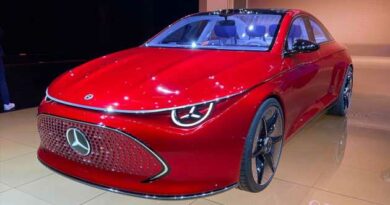China Plug-In Car Sales Hit New Record In October 2023
Plug-in electric car sales in China consistently increase, reaching another all-time monthly record—the third one in a row.
According to EV Volumes’ data, shared by researcher Jose Pontes, 808,094 new passenger plug-in electric cars were registered in China in October, which is 41% more than a year ago. This is the first result above 800,000 and we are now wondering whether it might get closer to one million at the end of the year, which is historically the strongest.
The market share of rechargeable cars in China increased to 39% (compared to 31% a year ago), including 26% for all-electric cars (well over 500,000) and 13% for plug-in hybrids. These results are far higher than in Europe or in the United States.
Moreover, the Chinese market is bigger than the rest of the world, accounting for roughly 60% of all plug-in electric car sales in October.
Plug-in car registrations for the month (YOY change):
- BEVs: about *539,000 and 26% market share
- PHEVs: about *269,000 and 13% market share
- Total: 808,094 (up 41%) and 39% market share
* estimated from the market share
Plug-in electric car sales in China – October 2023
During the first 10 months of the year, more than 6.2 million new plug-in electric cars have been registered in China (up roughly 41 percent year-over-year), which was about 39 percent of the total volume.
Plug-in car registrations in January-October (YOY change):
- BEVs: about *4.2 million and 24% market share
- PHEVs: about *2.0 million and 12% market share
- Total: 6,238,332 (up 35%) and 36% market share
* estimated from the market share
For reference, in 2022, over 5.92 million new passenger plug-in electric cars were registered in China (30 percent of the total volume).
This year, the number of new registrations is expected to noticeably exceed 7 million, with chances to get close to 8 million units.
Model rank
In October, the best-selling plug-in electric cars were once again also the best-selling cars overall (first four spots).
BYD absolutely dominated the list, with five nameplates in the top five—Song, Yuan, Qin, Seagull, and Dolphin. The Tesla Model Y was seventh this time, slightly behind the GAC Aion Y.
It’s worth noting that three out of the top ten models are entry-level vehicles, like the BYD Seagull (4th) and two Wulings (8th and 9th). This reminds us that prices matter a lot.
Top 10 plug-ins for the month:
- BYD Song Plus: 63,965 (10,982 BEVs + 52,983 PHEVs)
- BYD Yuan Plus (aka Atto 3): 40,019
- BYD Qin Plus: 38,273 (9,383 BEVs + 28,890 PHEVs)
- BYD Seagull: 37,836
- BYD Dolphin: 28,353
- GAC Aion Y: 27,132
- Tesla Model Y: 26,353
- Wuling Bingo: 23,744
- Wuling Hong Guang MINI EV: 20,337
- BYD Han: 20,267 (9,290 BEVs + 10,977 PHEVs)
There are no big changes in the year-to-date ranking, although BYD’s models are strengthening.
Top 10 plug-ins in January-October:
- BYD Song Plus: 492,201 (68,004 BEVs + 424,197 PHEVs)
- BYD Qin Plus: 370,453 (99,125 BEVs + 271,328 PHEVs)
- Tesla Model Y: 346,462
- BYD Yuan Plus (aka Atto 3): 281,930
- BYD Dolphin: 272,740
- GAC Aion S: 193,960
- GAC Aion Y: 190,684
- Wuling Hong Guang MINI EV: 189,863
- BYD Han: 184,411 (89,191 BEVs + 95,220 PHEVs)
- BYD Seagull: 168,049
* BEV and PHEV versions of the same models were counted together in the source.
Brands
BYD is the most popular brand and automotive group in China, and this is not expected to change anytime soon.
Top brands by share in the plug-in segment in January-October:
- BYD: 35.0%
- Tesla: 7.5%
- GAC Aion: 6.4%
- SAIC-GM-Wuling: 5.6%
- Li Auto: 4.6%
- Changan: 4.3%
- Geely: 4.0%
Top automotive groups by share in the plug-in segment in January-October:
- BYD: 36.6%
including Denza brand - Tesla: 7.5%
- SAIC: 7.1%
including the SAIC-GM-Wuling joint venture (between SAIC, GM, and Liuzhou Wuling Motors) - GAC: 6.9%
- Geely-Volvo: 6.3%
- Changan: 4.8%
- Li Auto: 4.6%
Source: Jose Pontes (EV Volumes data) – CleanTechnica
Source: Read Full Article



